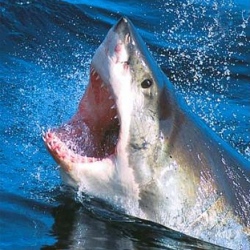
Previous studies have documented local overfishing of some populations of sharks and rays. But this is the first one to survey their status through out coastal seas and oceans. A quarter of known shark and ray species globally fall under three threatened categories on the IUCN Red List.
"We now know that many species of sharks and rays, not just the charismatic white sharks, face extinction across the ice-free seas of the world," says Dulvy. "There are no real sanctuaries for sharks where they are safe from overfishing."
Over two decades, the authors applied the IUCN’s Red List categories and criteria to the 1,041 species at 17 workshops involving more than 300 experts. They incorporated all available information on distribution, catch, abundance, population trends, habitat use, life histories, threats and conservation measures.
Sharks and rays are at substantially higher risk of extinction than many other animals and have the lowest percentage of species considered safe. Using the IUCN Red List, the authors classified 107 species of rays (including skates) and 74 species of sharks as threatened. Just 23 percent of species were labeled as being Least Concern.
The authors identified two main hotspots for shark and ray depletion, the Indo-Pacific (particularly the Gulf of Thailand), the Red Sea and the Mediterranean Sea.
"In the most peril are the largest species of rays and sharks, especially those living in relatively shallow water that is accessible to fisheries. The combined effects of overexploitation — especially for the lucrative shark fin soup market, and habit degradation are most severe for the 90 species found in freshwater.
"A whole bunch of wildly charismatic species is at risk. Rays, including the majestic manta and devil rays, are generally worse off than sharks. Unless binding commitments to protect these fish are made now, there is a real risk that our grandchildren won’t see sharks and rays in the wild."
